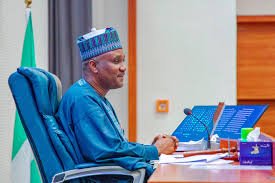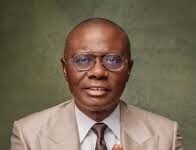The Speaker of the House of Representatives, Tajudeen Abbas on Monday said Nigeria is playing a leading role in the race to provide electricity to 300 million Africans by 2030.
He also commended President Bola Tinubu’s approval of a $1bn financing initiative for the Rural Electrification Agency in December 2024.
The Speaker stated this while delivering the keynote address at the opening of the First Legislative Conference and Expo on Renewable Energy organised by the House of Representatives Committee on Renewable Energy, chaired by Anambra lawmaker, Afam Ogene, in collaboration with the United Nations Development Programme (UNDP), in Lagos.
“On the continental stage, Nigeria has assumed a leadership role. Through our participation in the Mission 300 Initiative with the World Bank and the African Development Bank, we are working to provide electricity to three hundred million Africans by 2030.
“While progress has been made, the road ahead requires sustained effort. The success of this transition depends on coherent actions across all institutions. Legislators must establish sound legal foundations. The executive must implement it with integrity and urgency. The private sector must invest in innovation and scale. Civil society must foster awareness, inclusion, and accountability. This conference, therefore, provides an opportunity to reaffirm our shared commitment.
“Our legislative agenda recognises energy reform as central to our national priorities. Strategic Objective 8.5 aims to promote renewable energy development while ensuring access, efficiency, and environmental responsibility,” he said.
Among recent legislative interventions, he cited the House’s passage of new tax reform bills that eliminate Value Added Tax on renewable energy components and Compressed Natural Gas technologies. These reforms, he said, are designed to stimulate private investment and enhance affordability in the clean energy sector.
The Speaker hinted that the House is working to provide legal backing foar Nigeria’s Renewable Energy and Energy Efficiency Policy of 2015, “A framework that seeks to boost renewable energy adoption, curb greenhouse gas emissions, and improve energy efficiency nationwide.”
Speaker Abbas noted that the urgency to transition to clean energy is no longer optional, citing global energy trends that show a decisive shift toward renewables. He argued that in 2024, renewable energy accounted for over 92 per cent of new global power generation capacity, driven primarily by solar and wind, bringing the world’s total installed capacity to over 4,448 gigawatts, a 15 per cent year-on-year increase.
He also referenced international investment figures from 2023, where $1.7tn of the $2.8tn total global energy investment was directed toward renewable energy, energy efficiency, and electric mobility.
“This is a structural reorientation of the global energy economy,” Abbas said. “Nigeria must align with this reality to stay relevant, competitive, and environmentally responsible.”
![]()










